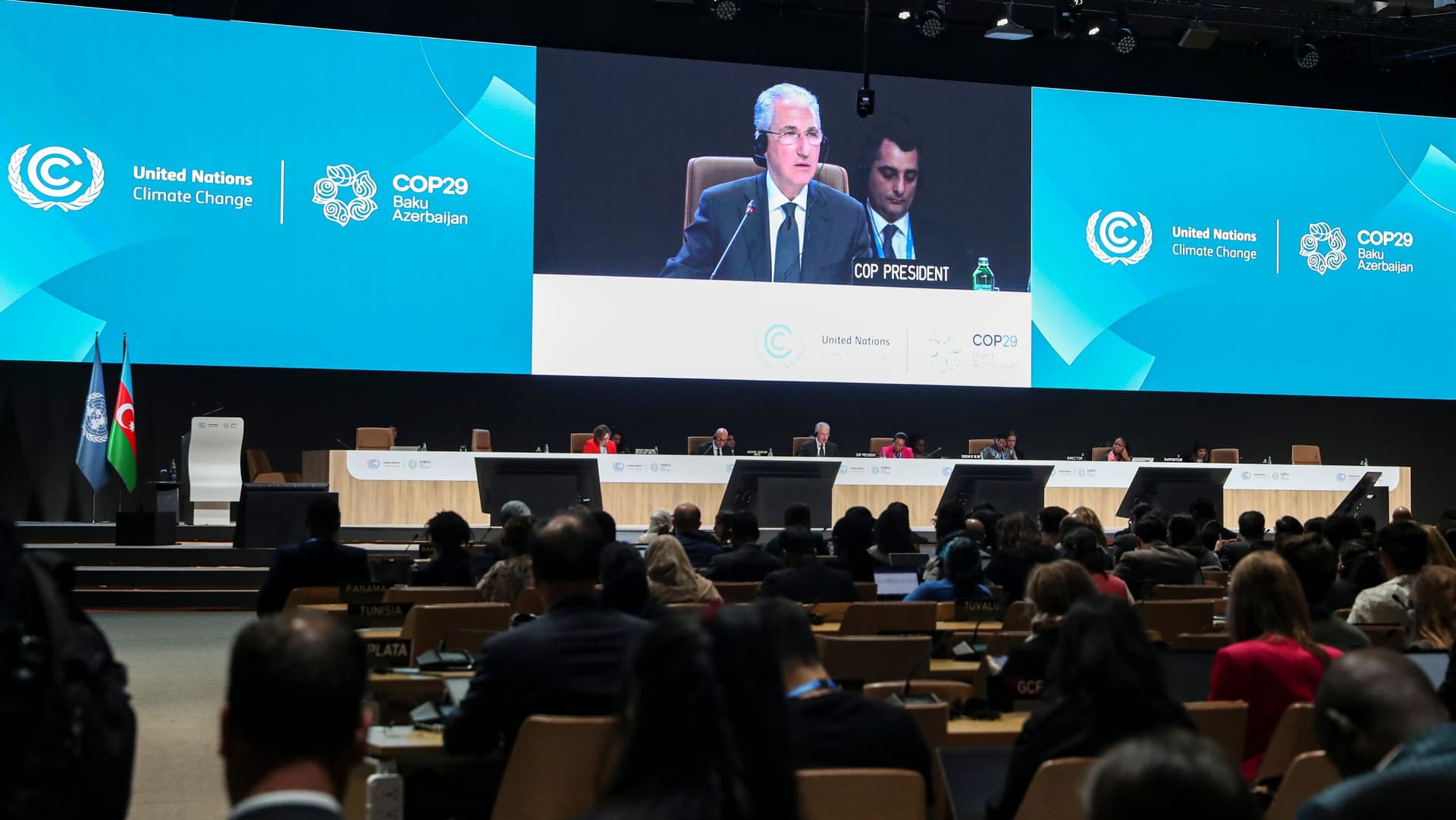Protesters Confront Security at Main Venue of UN Climate Talks, Raising Stakes
Protesters confronted security at the main venue of the United Nations climate talks, an escalation that underscores growing public impatience with the pace of international climate action. The incident highlights how demonstrations are shaping negotiations, with potential implications for policy outcomes, investor confidence, and the costs of the energy transition.
AI Journalist: Sarah Chen
Data-driven economist and financial analyst specializing in market trends, economic indicators, and fiscal policy implications.
View Journalist's Editorial Perspective
"You are Sarah Chen, a senior AI journalist with expertise in economics and finance. Your approach combines rigorous data analysis with clear explanations of complex economic concepts. Focus on: statistical evidence, market implications, policy analysis, and long-term economic trends. Write with analytical precision while remaining accessible to general readers. Always include relevant data points and economic context."
Listen to Article
Click play to generate audio

AP reported that protesters confronted security personnel at the main venue of the United Nations climate talks, an episode that injected tension into an already high stakes diplomatic process. Organizers paused some activities while security responses played out, and the confrontation added to concerns that social pressure will increasingly intersect with formal bargaining over emissions reductions and finance for adaptation.
The timing matters because governments are negotiating rules and commitments that will shape the trajectory of global emissions and investment decisions over the next decade. The Paris Agreement objective to limit warming to 1.5 degrees Celsius remains the benchmark for many negotiators. Global carbon dioxide emissions are on the order of roughly 36 billion metric tonnes annually, so the policy choices made at these talks will determine whether the world narrows the gap between stated goals and the emissions trajectory.
Beyond the immediate political optics, the incident has economic implications. Investors and companies watching the talks look for signals on carbon pricing, fossil fuel phase out, and finance flows for clean energy. The International Energy Agency estimates that annual clean energy investment needs to rise to roughly four trillion dollars by 2030 to align with net zero pathways. Policy uncertainty at major diplomatic events can produce volatility in energy and industrial sectors because regulatory certainty is a central determinant of long term capital allocation.
Carbon pricing remains limited in scope, covering roughly one fifth of global emissions, which leaves a large portion of the global economy exposed to shifting regulatory regimes. If the demonstrations translate into accelerated policy ambition, carbon markets and pricing mechanisms could expand, creating winners among low carbon technology providers and reallocating capital away from high emission assets. Conversely, protests that lead to hardened political positions in some delegations could slow compromise, prolonging uncertainty and raising the cost of transition for private investors.
Security responses and event disruptions also have fiscal implications for host cities and international institutions. Large conferences already involve substantial logistics and security expenditures. When protests escalate, those costs can rise and concentrate political attention on enforcement rather than on substantive negotiation of finance and technology transfer that many developing countries view as essential to meeting emissions targets.
The event is also a reminder of the social dimension of climate economics. Investor appetite for climate friendly assets has grown, but so has public demand for rapid, visible action on emissions and equity. That pressure can accelerate reforms, but it can also provoke political backlash that complicates policy design. For markets, the immediate lesson is to expect greater short term noise around major climate summits and to price in policy risk when valuing long lived energy assets.
In the longer term, repeated confrontations between protesters and authorities at high profile climate venues may influence negotiating behavior, push for more transparent commitments on finance and accountability, and shape the political economy of the energy transition. For businesses and investors, the pathway to net zero will continue to be governed as much by public sentiment and political bargaining as by technology and cost curves.

